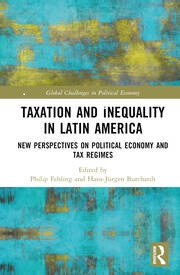Social inequalities
Social inequality manifests itself in the gap between rich and poor, which has widened in many societies in recent years. One expression of this trend is the marginalization and precarization of entire segments of the population, another the formation of relatively homogeneous and closed elites. In addition to growing income disparities, inequalities are also forming along other axes such as gender, race, age or religion. Social inequalities thereby provoke exclusion and disadvantage, affect political regimes, participation and democracy, and catalyze social conflicts. Overall, they determine the distribution of life opportunities and shape the everyday life of entire societies. Thus, the causes, dynamics and consequences of social inequalities pose numerous challenges to societies.
Our department deals empirically and theoretically with these challenges and researches the topic with regards to the region of Latin America. Comparatively, the continent is characterized by particularly pronounced and persistent social inequalities. The conditions under which international, regional, national and local factors interact in the emergence, reproduction and transformation of social inequalities are empirically researched and theoretically analyzed. Central fields of investigation are social and labor market policies, environmental and tax systems, elite and wealth research, and political economy analyses of inequality. Based on these foci, different facets of social inequality in different country contexts are to be investigated. Through conceptual considerations, these studies also intend to provide impetus for political interventions to reduce social inequalities – in and beyond Latin America.
Also, see our relevant publications regarding this topic:
 Fehling, P. & Burchardt, H.-J. (Eds.)(2023): Taxation and Inequality in Latin America: New Perspectives on Political Economy and Tax Regimes. Routledge: London
Fehling, P. & Burchardt, H.-J. (Eds.)(2023): Taxation and Inequality in Latin America: New Perspectives on Political Economy and Tax Regimes. Routledge: London
Burchardt, H.-J. & Leinius, J.(Eds.)(2022): (Post-)colonial Archipelagos: Comparing the Legacies of Spanish Colonialism in Cuba, Puerto Rico, and the Philippines.
The University of Michigan Press: Michigan
